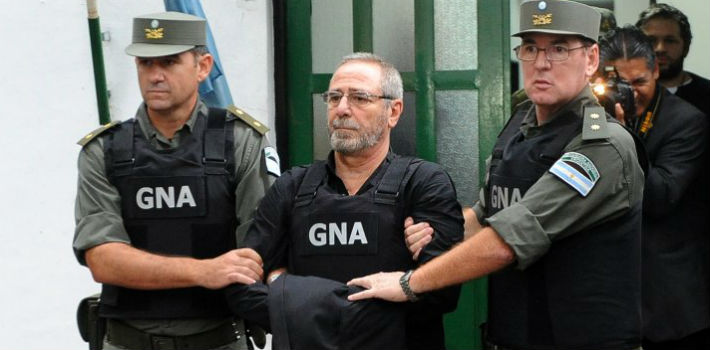
EspañolArgentina officials has delayed sending a bill to congress that would grant certain criminals amnesty in exchange for information related to corruption cases.
According to sources obtained by the Argentinian newspaper La Nación, officials believe that it was unnecessary to boost the initiative at this time on the grounds that plea deals already exist for drug trafficking, kidnapping-for-ransom, terrorism and laundering. However, corruption cases do not apply, and will have to be considered at another, unspecified time.
The alliance behind President Mauricio Macri reportedly worried the law — which mostly involves more-aggressively seeking information about corruption within the government — would create tension between certain parts of congress. In particular, they reportedly wanted to avoid kicking up more dust in the corruption case related to former President Cristina Kirchner, who is under investigation for money laundering, among other things.
- Read More: Bolivian Journalist Exiled to Argentina
A confrontation about corruption could hinder support for other initiatives that the president wants to present to congress for approval, among them being the money owed to people’s pensions, and policy regarding money laundering.
The laws as they currently exist do not include the option of making a plea deal related to crimes of corruption within the government. This prevents former officials from obtaining sensitive information in exchange for a reduction in a person’s sentence.
President Mauricio Macri advocated for the law during his campaign for president.
“Today there are very important tools at the disposal of the courts that work similarly to that of making a plea deal. It is very important that we use them,” he said during a presidential debate on November 15, 2016.
During a March speech during a congressional session, Macri said he would send an initiative related to the issue for consideration, and evaluation.
The government has drafted two bills related to making plea deals during corruption cases. One was made by a team at the Ministry of Security led Patricia Bullrich. The other was done by the Anti-Corruption Office’s (OA) Laura Alonso with help from the Ministry of Justice.
According to the newspaper La Nación, Bullrich incorporated specific data for a complete investigation into more complex crimes. On top of the plea deal law, it included facts regarding undercover agents as well as a “revealing agent,” informants and “controlled delivery.”
The OA’s version, titled “Effective Collaborator,” contemplates the possibility of exempting or reducing a person’s penalty depending on the value of the information exchanged, according to the newspaper.
The “effective collaborator” can provide accurate, verifiable information, such as revealing the identity of coconspirators, accomplices or other facts of the investigation, among other things. The text pointed out that the informant would receive a one-third reduction of a maximum sentence, and half of a minimum sentence.
An exemplary case is that of Leonardo Fariña, who was involved in the Kirchner money laundering scandal. The information she provided to the officials allowed the case to continue forward.
The prosecutor of the case has offered businessman Lázaro Báez a similar opportunity, but so far his defense has not taken steps in response.
In Brazil, plea deals have been very successful in advancing public and private corruption cases of “Patrolao” and “Mensalao,” which consist of legislators accepting bribes.
Source: La Nación
 Versión Español
Versión Español












